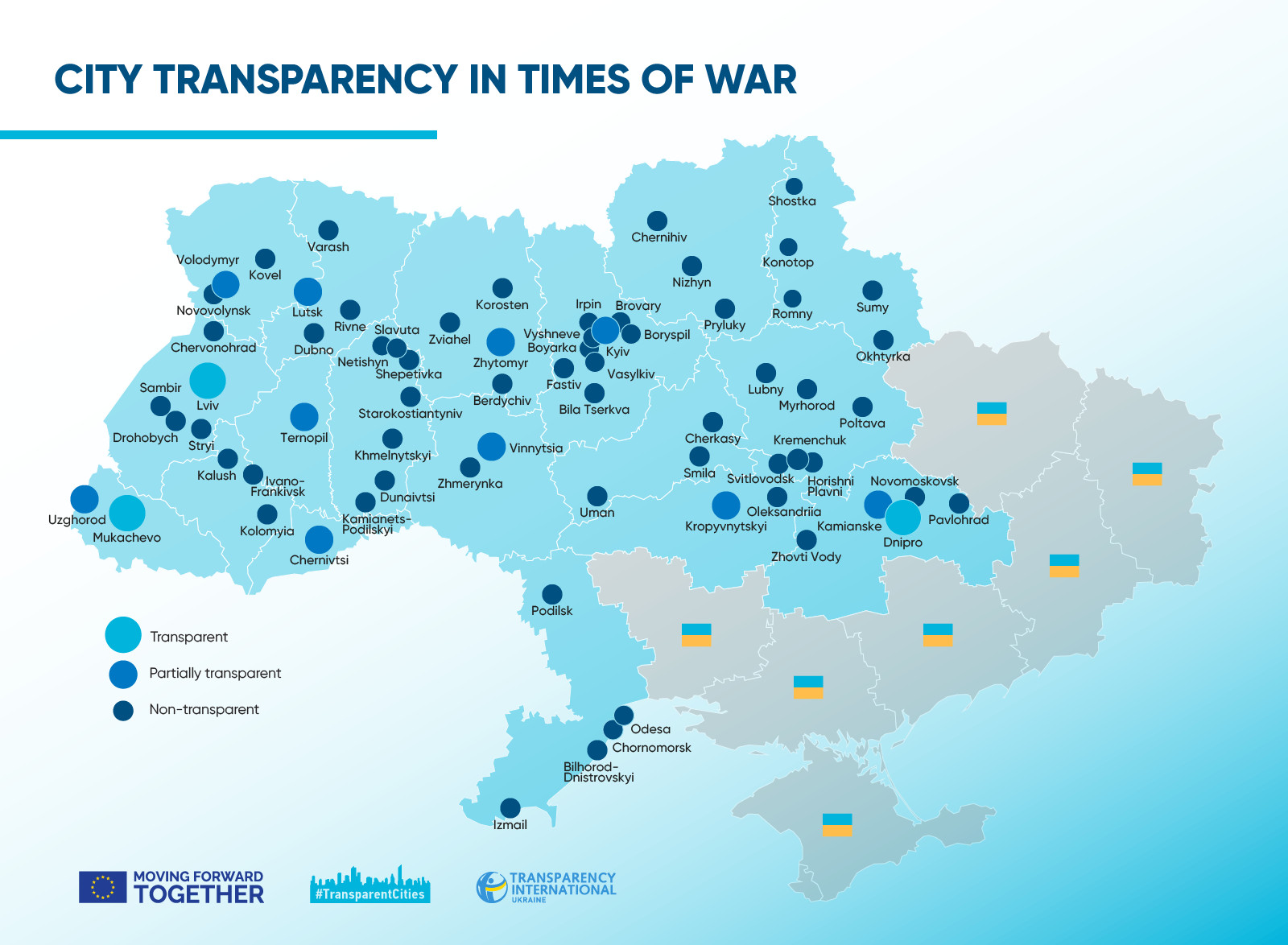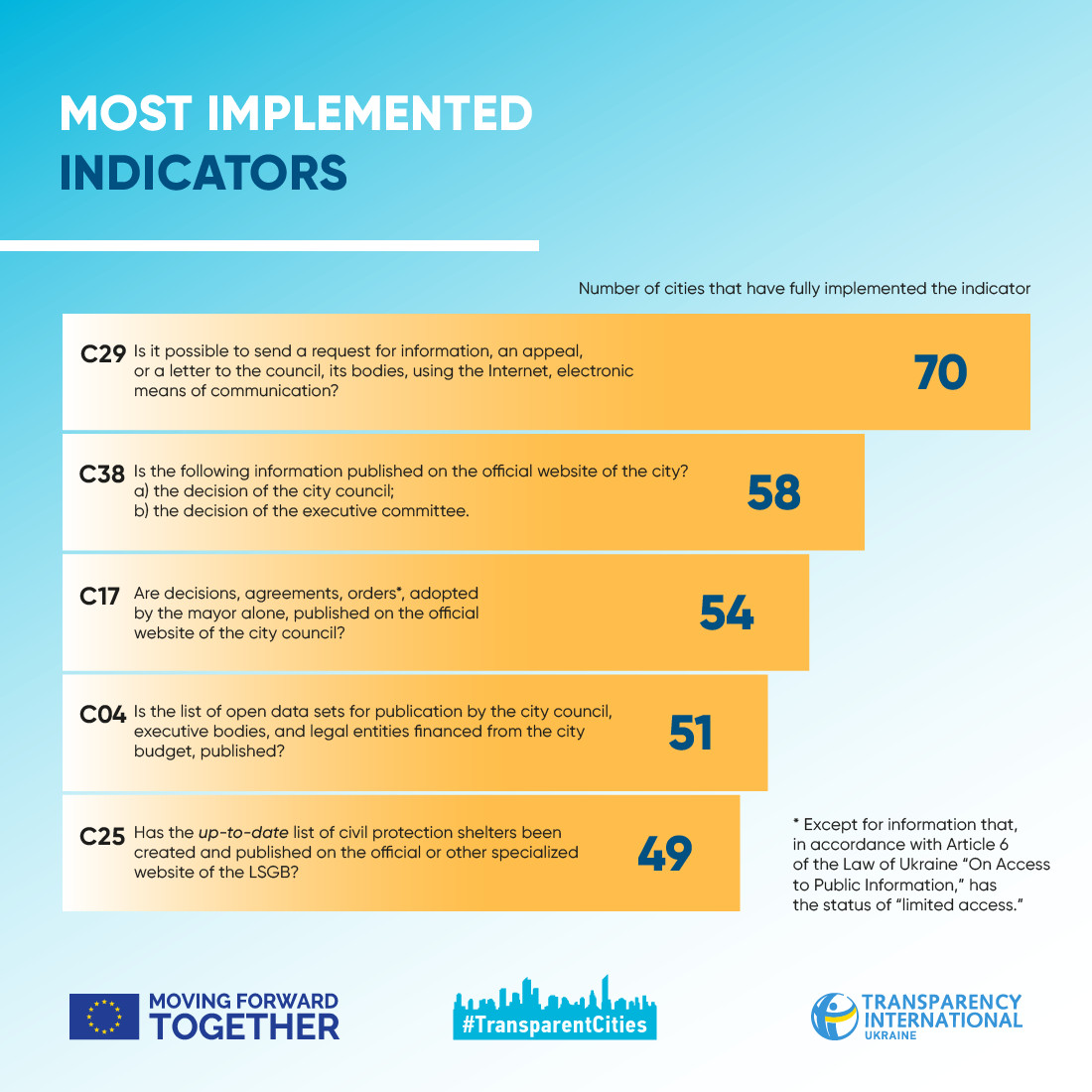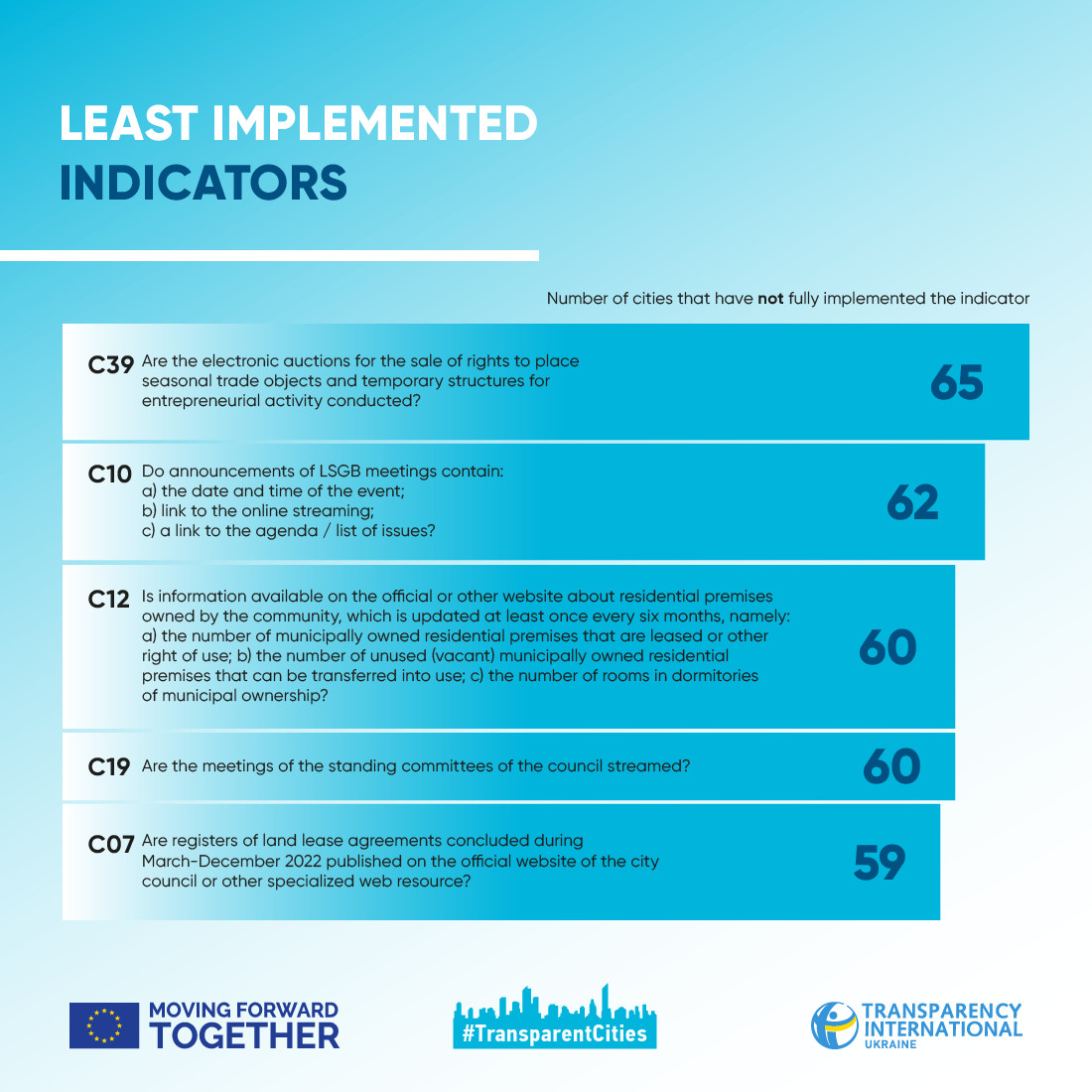The Transparent Cities program (Transparency International Ukraine) presents the results of a study of the transparency of 70 Ukrainian cities under martial law according to a new methodology. This study of the state of city transparency in war conditions is not a linear continuation of the Transparency Ranking. Methodologies differ significantly in the scales of assessment and have a different number of indicators.
The three leaders of this year's study are Dnipro, Lviv, and Mukachevo. Vinnytsia, Volodymyr, Zhytomyr, Kamianske, Kyiv, Kropyvnytskyi, Lutsk, Ternopil, Uzhhorod, Chernivtsi are classified as “partially transparent.” The rest of the cities (57) are “non-transparent.”

The low level of transparency of individual cities does not always indicate their lack of integrity or corruption risks. This could be affected by several factors related to wartime restrictions.
The average rate of implementation of the updated indicators is 37.5%; indicators that constitute the requirements of Ukrainian legislation are fulfilled more often. Solutions that are considered good practices were implemented less often (28%). The least implemented indicators are those that require significant resources, special digital skills and/or the ability (including financial) to ensure constant implementation (electronic auctions or online broadcasts of meetings).


For more than a year, Ukrainian cities have been working in the context of unprecedented wartime challenges. Among other things, finding a balance between restricting access to information and protecting people from threats from the aggressor has become a challenge. At the same time, issues of transparency and accountability are important not only for municipalities and residents, but also for the continued support of Ukraine by the international community. Therefore, it is essential to update the work in this direction wherever possible.
Despite russia's full-scale invasion of Ukraine, local governments have shown resilience. Not only have they adapted their activities to the requirements of martial law, but they also often continue to implement solutions to increase transparency and accountability.
After the introduction of martial law, the field of access to public information has generally regressed. Referring to security risks, cities suspended the work of official portals or restricted access to certain sections or pages. Thus, local self-government bodies widely stopped publishing announcements of meetings so that the enemy did not know about the time and place of the gathering of local administrators. The level of implementation of individual indicators was also affected by the closure of the Open Data Portal in February 2022, where municipalities, among other things, published data on residential premises owned by the community and the leased land plots.
If we compare the results of the adapted study and last year's ranking, then there is a connection between the level of transparency before and after the introduction of martial law. The analysis proves that there is a correlation between the level of transparency of the city as of December 2022 and its indicator in the 2021 Transparency Ranking. In other words, cities that were relatively transparent in their work before the introduction of martial law showed higher transparency rate in 2022.
To strengthen the capacity of cities and ensure transparency and efficiency of local authorities, the program developed the key recommendations:
- Publishing data sets and creating services that most contribute to the adaptation of the population to wartime challenges.
- Ensuring transparent accounting and distribution of aid.
- Restoring the work of local open data portals and geoportals in those cities where they are still closed, proactively complying with the requirements of Ukrainian legislation in the field of open data.
- Ensuring online broadcasts of meetings of collegial bodies of the city council.
- Publishing minutes of meetings and documents adopted by collegial bodies of the city council.
- Publishing the list of persons appointed to positions in local self-government bodies on a non-competitive basis.
The Transparent Cities program also compiled a list of best wartime practices that proved to be effective. Namely: publication of information about shelters and information for IDPs, electronic submission of applications for housing, electronic appeals of residents through special city services, support for relocated businesses, reporting on the distributed humanitarian assistance, etc.
Access to information is a constitutional right of every person, and local authorities should promote it. Transparency is one of the key principles for the successful restoration of Ukraine, continued support of international partners, and successful future European integration.
The research is conducted within the project “Transparent Cities: E-Platform for Cooperation of Citizens and Local Governments for Accountability and Good Governance,” implemented with the financial support of the European Union.